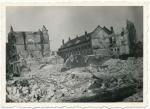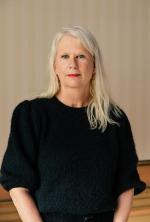
Joods Rotterdam
Deprivation and Restoration of Rights Report
On 5 June 2020, the report Ontrechting en rechtsherstel: Het Rotterdamse gemeentebeleid inzake ontrechting en rechtsherstel van Joodse oorlogsslachtoffers 1940-1955 (Rotterdam's municipal policy on the deprivation and restoration of the rights of Jewish war victims 1940-1955) was presented to Mayor Ahmed Aboutaleb of Rotterdam. The report was drafted at the municipality’s request by NIOD researchers Dr Hinke Piersma and Marleen van den Berg MA.
The questions addressed in this report are:
- To what extent did the City present municipal charges or bills that, in retrospect, can be considered unfair?
- Were the rights to Jewish property that had been bought or exploited by the municipality restored after 1945?
The report is a reconstruction of Rotterdam’s municipal policy on the deprivation and restoration of the rights of Jewish victims during and after the Second World War. The report does not address the political consequences that could be drawn from its findings. That is the responsibility of the municipal authorities.
Doctoral research on ‘Jewish Rotterdam’
In her PhD research project ‘Jewish Rotterdam’, Marleen van den Berg researches the fate of the Jews in Rotterdam during and immediately after the Second World War. Using letters, diaries, interviews, and memoirs, she reconstructs what living in Rotterdam, an occupied and bombed-out city, entailed for the Rotterdam Jews. Van den Berg meticulously follows how the Jewish residents of Rotterdam were increasingly restricted in their movements, how the net closed around them, and how many of them were eventually deported.
The post-war section of her research is set against the backdrop of the deprivation of rights during the war and the restoration afterwards. What did it mean for Rotterdam Jews to return to the city after the war, and how did the restoration of rights proceed in a city that still suffered from the havoc wreaked in 1940?
The doctoral research aims to:
- bridge the gap between the historiography of the persecution of the Jews and the historiography of the deprivation and restoration of rights;
- increase the knowledge about Jewish Rotterdam and to incorporate it into the historiography of the persecution of the Jews in the Netherlands;
- use micro-history to gain insight into the impact of local circumstances (e.g. the bombing of Rotterdam on 14 May 1940) on the national and international processes of the deprivation and restoration of rights.
Deadline: August 2022
For the purpose of the report an advisory committee was installed. Members: Ahmed Aboutaleb (Mayor of Rotterdam) (chair), F. van Gelderen (secretary Loods 24), L. Hertzberger (chair Liberal Jewish congregation Rotterdam), C. den Hoedt (chair Nederlandse Israëlitische Gemeente Rotterdam), R. Naftaniël (vice-president Centraal Joods Overleg), W. Velthuizen (former director Belastingen Rotterdam) en J. Steenhuis (city archivist Rotterdam, also secretary).
Promotoren: Prof. dr. Frank van Vree, Prof. dr. Ismee Tames, dr. Hinke Piersma
Financed by: Municipality Rotterdam, University of Amsterdam, NIOD
